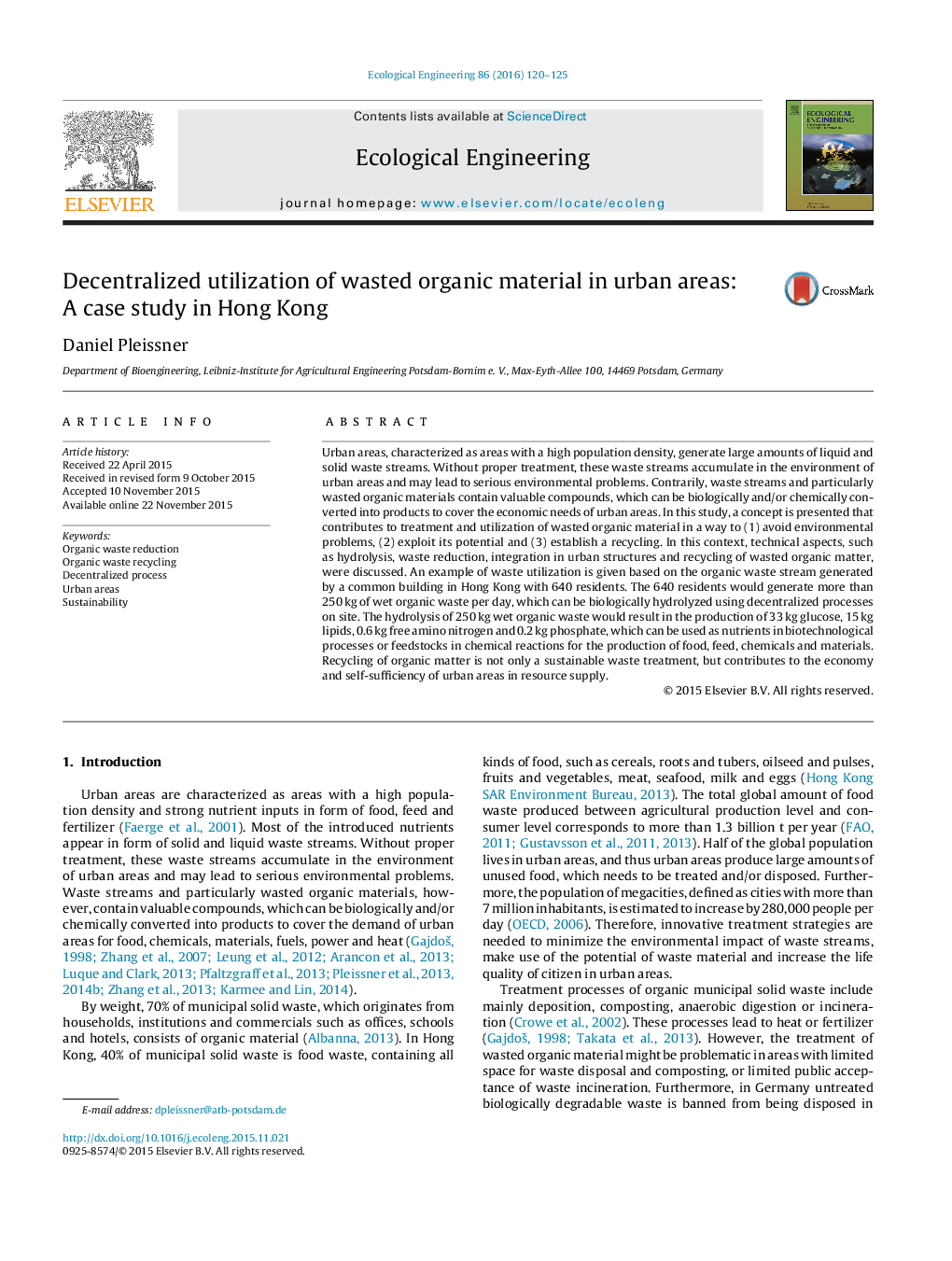| کد مقاله | کد نشریه | سال انتشار | مقاله انگلیسی | نسخه تمام متن |
|---|---|---|---|---|
| 4388922 | 1618013 | 2016 | 6 صفحه PDF | دانلود رایگان |
• Organic waste utilization concept in urban areas is introduced.
• The concept follows the principle of ecological consistency.
• Decentralized utilization of organic waste in biotechnological processes is presented.
• Social and technical aspects of decentralized utilization processes are discussed.
• Utilization of waste is expected to contribute to self-sufficiency of urban areas.
Urban areas, characterized as areas with a high population density, generate large amounts of liquid and solid waste streams. Without proper treatment, these waste streams accumulate in the environment of urban areas and may lead to serious environmental problems. Contrarily, waste streams and particularly wasted organic materials contain valuable compounds, which can be biologically and/or chemically converted into products to cover the economic needs of urban areas. In this study, a concept is presented that contributes to treatment and utilization of wasted organic material in a way to (1) avoid environmental problems, (2) exploit its potential and (3) establish a recycling. In this context, technical aspects, such as hydrolysis, waste reduction, integration in urban structures and recycling of wasted organic matter, were discussed. An example of waste utilization is given based on the organic waste stream generated by a common building in Hong Kong with 640 residents. The 640 residents would generate more than 250 kg of wet organic waste per day, which can be biologically hydrolyzed using decentralized processes on site. The hydrolysis of 250 kg wet organic waste would result in the production of 33 kg glucose, 15 kg lipids, 0.6 kg free amino nitrogen and 0.2 kg phosphate, which can be used as nutrients in biotechnological processes or feedstocks in chemical reactions for the production of food, feed, chemicals and materials. Recycling of organic matter is not only a sustainable waste treatment, but contributes to the economy and self-sufficiency of urban areas in resource supply.
Journal: Ecological Engineering - Volume 86, January 2016, Pages 120–125
